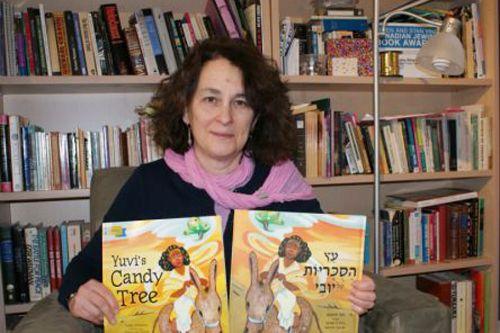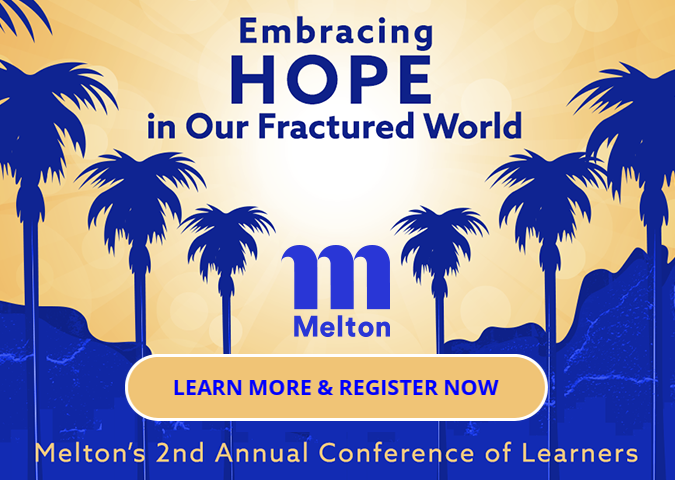Meet Honorable Meltonian: Lesley Simpson
"With me, a little learning is a dangerous thing"
Lesley Simpson, a journalist from Hamilton, Ontario, considers herself a kind of Curious George. It was that curiosity that set her on a path of Jewish learning beginning with a Melton course and most recently continued, 30 years later, with a PhD in Jewish studies.
Lesley doesn't recall how she first heard about Melton, back in the pre-Google era of the early 1990s. But as a 20-something-year-old with no formal Jewish education, the concept intrigued her. Lesley and a friend soon found themselves sitting in Toronto's JCC for Melton's first-ever program in Canada.
The course "Jewish 101" was taught by Mark Charendoff, who now heads the Maimonides Fund, and renowned educator Rabbi Yitzchak Feigenbaum. It catered to adults like Lesley, who lacked Jewish literacy but were seeking an intellectually rigorous, text-based experience. "What impressed me the most was the curriculum was not dumbed down. It was at a sophisticated level, and it was really interesting." But its sophistication did not mean the class was dry. "We probably spent half our time laughing! Both of the teachers had robust senses of humor, so it was a ton of fun."
At the time, Lesley had just completed her Master's in English at the University of Toronto. The Melton course "was the first time in my life I was in a classroom where I wasn't going to have to write an essay and take a test. It was that traditional Jewish idea of learning for learning's sake, and it was very powerful for me." Lesley enjoyed learning alongside other adults who were there not because they had to be, but because they chose to be. These included people aged 20 to 80, representing a range of nationalities. "In Toronto, there are Jews from all over the world, so it was a pretty global classroom."
While Lesley moved away after the first year of the two-year course, the learning—along with the welcoming approach and the diversity of the students—had made a deep impression on her. "The Melton course functioned for me as an accessible but really interesting window into what being Jewish is about." Lesley sought out other Jewish courses, but none of them were as multi-generational, trans-denominational, and ultimately as intellectually satisfying as Melton's. Finally, when Lesley turned 50, she enrolled in York University as a PhD candidate in Jewish Studies.
She focused her research on ethical wills. "These are letters, most often but not always from parents to children. They're a Jewish tradition, though they're not exclusive to Jewish civilization—other civilizations have these too." Ethical wills are not about "your diamond necklace or your fancy sailboat," they are about the values people want to pass on to the next generation. They contain people's "hopes and wishes and dreams, and they're very powerful documents."
Lesley's research starts with Solomon Rabinovitsh, better known as Yiddish author Sholem Aleichem. His ethical will—which was published in the New York Times upon his death in 1916—gave his family a choice when it came to honoring his memory: they could say the Kaddish for him, or they could read aloud one of his "merry stories" that made them laugh each year on the anniversary of his death. They have done the latter for the past century. "The family members themselves choose from the repertoire. It's a very democratized form of engagement for his family." Via Sholem Aleichem, Lesley explored what it means to be remembered through Jewish comedy. She then moved on to other creative forms of Jewish memory, including memoirs, documentaries, podcasts, and even wordless music, "because melody can take a place where words can fail. "Lesley defended her dissertation in 2020, and she is now working on a non-academic book about her research.
Recently, Lesley reconnected with the organization that started her on her Jewish journey. A member of The First Narayever Congregation in Toronto, during the pandemic she started taking a virtual Torah class with Rabbi Yael Splansky at Holy Blossom Temple. As soon as she saw Melton mentioned on the temple's website, the name evoked warm memories, and Lesley reached out to thank Melton for the impact it had made on her life.
"It planted a seed that grew into a very robust tree."
When you subscribe to the blog, we will send you an e-mail when there are new updates on the site so you wouldn't miss them.


